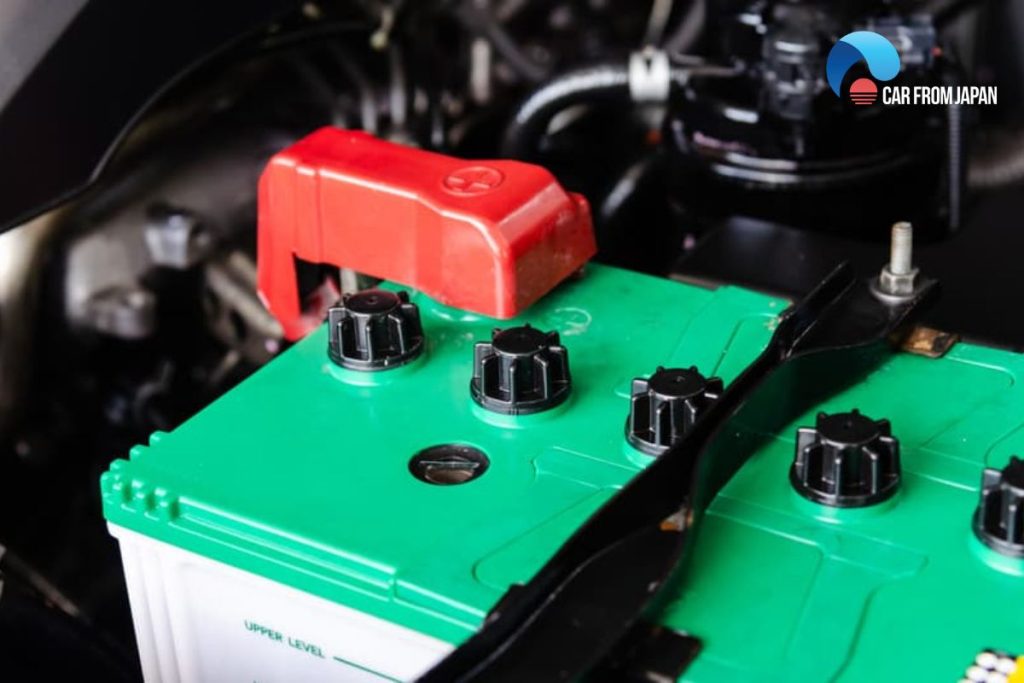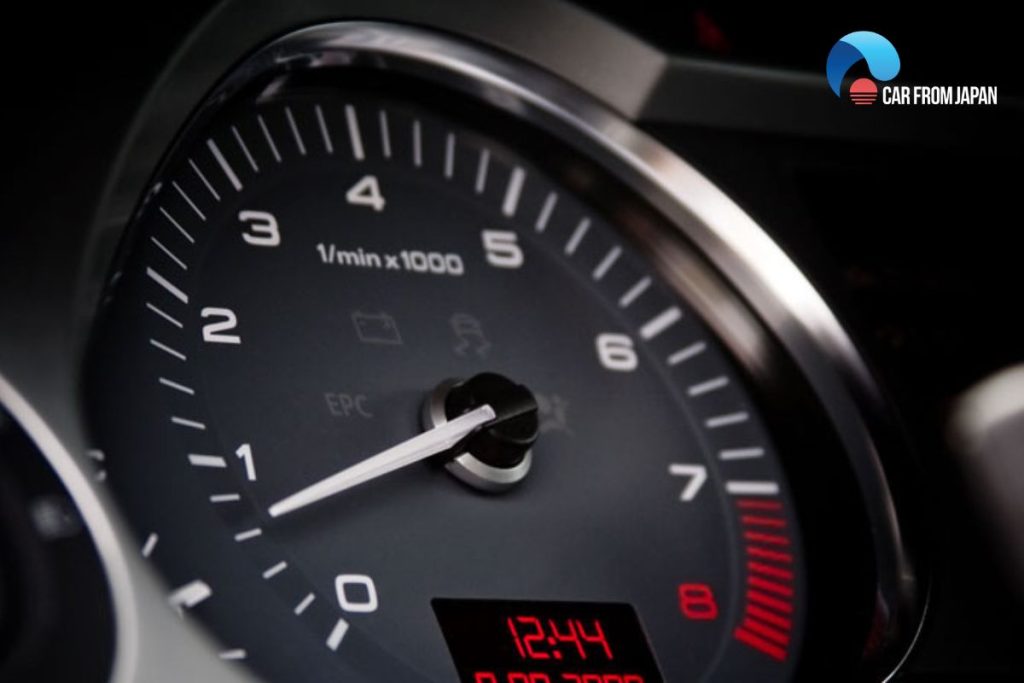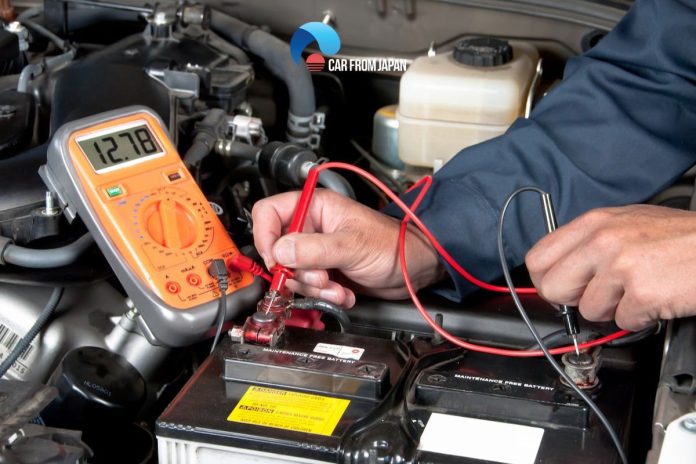It would be annoying to realize that your battery is dead when you are driving. Some enthusiasts advise that you can charge the car battery by leaving your car running idle.
So does idling a car charge the battery? We will take you through our own personal experience in this article!
Contents
- Does Idling A Car Charge The Battery?
- How Long To Charge Car Battery While Idling?
- How To Know A Fully Charged Battery?
- Some Notes When Using The Car Battery
- FAQs on Does Idling A Car Charge The Battery
- How effective is idling compared to driving when it comes to charging the car battery?
- How long would I need to idle my car to noticeably charge the battery?
- Does the age of the alternator affect how well idling charges the battery?
- Is it better to idle in Park or Neutral when charging the battery?
- Is idling a good way to recharge a battery after jump-starting?
- Will idling a hybrid car charge its 12V battery?
- Final Words
Does Idling A Car Charge The Battery?
The answer is Yes. Idling the car may not charge your battery as fast and more fully but the battery is still being charged. The alternator doesn’t charge the battery when your car is running or moving.
It’s linked to the engine and not to the wheels. Your car battery will be charged by the alternator which will provide electricity to the battery.
When the car engine operates, the armature in the generator rotates. It spins due to a mechanical connection to the engine’s crankshaft.
At this time, your generator will deliver a voltage from 13.5 V to 14.5 V, even when your car is idling (The higher the voltage, the faster the battery will charge). At this voltage, the battery is being charged.
It could be the coolest thing about the alternator because it can charge the car battery even while idling.
To get accurate results, you need to know the voltage of the battery when shutting down and then measure it again when idling.
If the voltage is more than 12.6V, your battery is charging. But please note that charging a car battery with an excessively high voltage can increase the off-gassing of hydrogen, which can, in turn, result in a hazardous situation where the battery might explode.
When your car is idling, the generator will now rotate, but it will not generate maximum power.
If the car is using large amounts of power from the battery, such as using a high-power car audio amplifier, running a very large inverter, car AC, etc. then the alternator may not be able to keep up with the dissipation at idle.
Simply put, most cars will charge the battery at idle speed. However, be careful when using large power-consuming equipment in this process, as it can actually drain the battery, while the engine is operating.

How Long To Charge Car Battery While Idling?
It can take a while or not fully charged if you are running other equipment while your car runs idle. Idling does not provide the same charging power as driving at highway speeds.
Modern vehicles with lots of equipment inside can run out of batteries in a short time if you don’t close the car door.
Basically, at idle you can get probably 80 amps out of your alternator. You can charge a flat battery to 80 percent full in about 2 hours, so long as your alternator can manage to produce around 14 volts at the battery terminal this whole time.
The time to charge the battery will depend on the condition of your battery whether it’s empty or half-empty.
Generally, it will take you about 30 minutes to 2 hours to refill the battery while the engine is idling. With that amount of time, you can expect to charge up to 80% of the battery.
Besides, if your car is older, you just need about 15 to 20 minutes idling to charge your battery to start your car.
However, it does not recommend idling your car too long because it can affect the engine oil, and make it contaminate, which will decrease the engine performance.
Many experts advised that you should idle your car for no longer than 30 minutes to ensure that the car battery is properly charged during idling you need to know when the battery is full.
Related Post: 5 Reasons Why Car Air Conditioners Not Blowing Cold Air When Idling
How To Know A Fully Charged Battery?
Knowing the time and when the battery is full not only helps to ensure the efficiency of the battery charging process but also prevents the battery from being overcharged, blistering, short-circuiting, or explosion.
To calculate the time it takes for the battery to be fully charged, you can rely on a simple formula like this:
Battery charge time = Battery capacity / Charging current
Example: Charging a 12V-30Ah battery with a charging current of 2A => Time to fully charge the battery is: 30/2 = 15 hours.
Currently, most batteries are 12 volts in almost every vehicle and all 12V batteries have a voltage of 11.8 Volt, which means the battery is out of power.

The fastest and simplest way to know how long it takes to charge a 12V battery is to measure the potential difference between the two terminals of the battery.
If it reaches 12.4V to 12.6V, it means your battery is fully charged. You can use a voltmeter to measure the voltage of the battery.
- The voltmeter shows 12.68V, the battery is fully charged.
- Voltage show 12.45V, and battery capacity is only about 75%.
- The voltage is 12.24V, and the battery capacity is only about 50%.
- The voltage: 12.06V, battery capacity: only about 25%.
Read More: How Long Can a Car Idle and What Happens During Idling?
Some Notes When Using The Car Battery
When starting up
Turn off all electrical equipment when starting the car to avoid wasting battery power. At that time, the current to be supplied will be higher than normal (5 to 7 times).
The battery will drop sharply, so each start should not last more than 5 seconds and the interval between each start should at least take 10 seconds for the battery to stabilize.
When installing the battery
The positive terminal must be attached before the negative terminal and the battery piles must be tightened to avoid looseness causing fire due to contact, which will be bad and affect the durability of the terminal.
Regularly clean the battery terminals
Clean the terminals during use and periodically maintain the battery according to the manufacturer’s instructions for use.
Beware battery short circuit
Absolutely do not let the battery short circuit because it will cause serious damage to the battery and may cause danger to yourself.
When charging the battery
Use the charger with the correct quality and standards of the manufacturer, the charging current does not exceed 10% of the rated current of the battery and the wrong polarity must not be connected when charging.
FAQs on Does Idling A Car Charge The Battery
How effective is idling compared to driving when it comes to charging the car battery?
Idling can charge the battery, but it’s much slower and less efficient than driving.
While the alternator does generate current at idle, it produces significantly more power at higher RPMs during regular driving.
How long would I need to idle my car to noticeably charge the battery?
In most cases, you’d need to idle for at least 15–30 minutes to make a noticeable difference in battery charge, and even then, it may not be enough to fully recover a deeply discharged battery.
Does the age of the alternator affect how well idling charges the battery?
Yes. A worn or weak alternator may not provide sufficient charge at idle.
In some older or poorly maintained vehicles, the alternator might only be effective at higher RPMs.
Is it better to idle in Park or Neutral when charging the battery?
There’s no major difference for battery charging. However, in automatic vehicles, Neutral may slightly reduce engine load to help the alternator generate more current, but the effect is minimal.
Is idling a good way to recharge a battery after jump-starting?
Not really. After a jump-start, idling won’t quickly or fully recharge a battery.
It’s better to drive the vehicle for at least 20–30 minutes to allow the alternator to charge at higher output.
Will idling a hybrid car charge its 12V battery?
Yes, but not directly. In most hybrids, the high-voltage battery charges the 12V battery via a DC-DC converter.
The engine may cycle on and off while idling, so the 12V battery can still be topped off, but the process is managed differently than in gas-only cars.
Final Words
In the end, does idling a car charge the battery? Yes, idling a car does charge the battery, but very slowly and inefficiently.
It’s generally not recommended as it wastes fuel and contributes to engine wear. And a dedicated battery charger is a much better option.
For more insightful Car maintenance tips, follow Car From Japan today!



